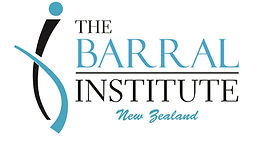
New Manual Articular Approach - Upper Extremity
(MAUE)
Course Length: 3 days. CPD: 18 hours
Course Description
In this course, you will examine the nerves of each joint, along with the arteries, meniscus, ligaments, capsule attachments and folds. During the program you will work with soft tissue mobilization of the associated bones, while looking at direct and indirect relationships between the bones of the body.
"Articular" refers to the joints of the body, which are critical points of interconnectivity between all other structures within the body. Joints receive and emit messages with other parts of the body, and are also connected to our emotions. NMAA integrates all aspects of the joint including the nerve, artery, bone, capsule, and ligaments, as well as visceral and emotional connections. NMAA delves into the joints like never before. It examines the nerves of each joint, along with the arteries, meniscus, ligaments, capsule attachments and folds. It incorporates soft tissue mobilization of the associated bones, while looking at direct and indirect relationships between the bones of the body. The relationship between the viscera and the joints is not widely understood. NMAA shows how interconnected they are and that without addressing this visceral connection many joint issues may not fully resolve. The application of the gentle NMAA techniques improves the body's ability to heal and restore itself to optimal health.
A joint is so much more complex than a place where bones come together. It is comprised of multiple components – including bone, cartilage, muscles, tendons, nerves, and fluid – that when functioning properly, allow the joint to glide smoothly and pain-free. If one component becomes problematic, the entire joint begins to compensate and not function properly. This leads to dysfunction ranging from temporary pain to longer term damage. All parts and systems within the body are interconnected – joints included – and when there is dysfunction in one place, other areas can be negatively impacted. A skilled NMAA practitioner can properly assess the interactions of the joints with the body to help restore proper function.
Course Highlights
-
Delve into the joints like never before. Examine the nerves of each joint, along with the arteries, meniscus, ligaments, capsule attachments and folds.
-
Work with soft tissue mobilization of the associated bones, while looking at direct and indirect relationships between the bones of the body.
-
Explore the relationship between the viscera and the joints.
-
Discover how the joints receive and emit messages with other parts of the body, as well as the emotional connections.
-
Learn how to evaluate and treat each major joint of the upper extremity for its primary dysfunction from the anatomical or physiological systems that contribute to it.
-
Explore such indications as clinical pain, sprains, arthrosis, and inflammation in a brand new way.
Pre-requisite:
This course is intended for licensed or certified healthcare professionals, or for students nearing completion in their studies to become a healthcare professional. ie Osteopaths, Physiotherapists, Chiropractors, Physicians, Registered Massage Therapists.
This course does not have any formal course pre-requisites, however having prior knowledge in the principles of listening will enhance your learning experience. Attending Visceral Manipulation: Abdomen 1 (VM1), Neural Manipulation: Neuromeningeal Manipulation; An Integrative Approach to Trauma (NM1) or Visceral Manipulation: Listening Techniques; An Integrative Approach to Evaluation (LT) will provide you with this information.
Required reading:
Read: Manual Therapy for the Peripheral Nerves and New Manual Articular Approach: Upper Extremity
Email admin@barral.co.nz to order
.jpg)